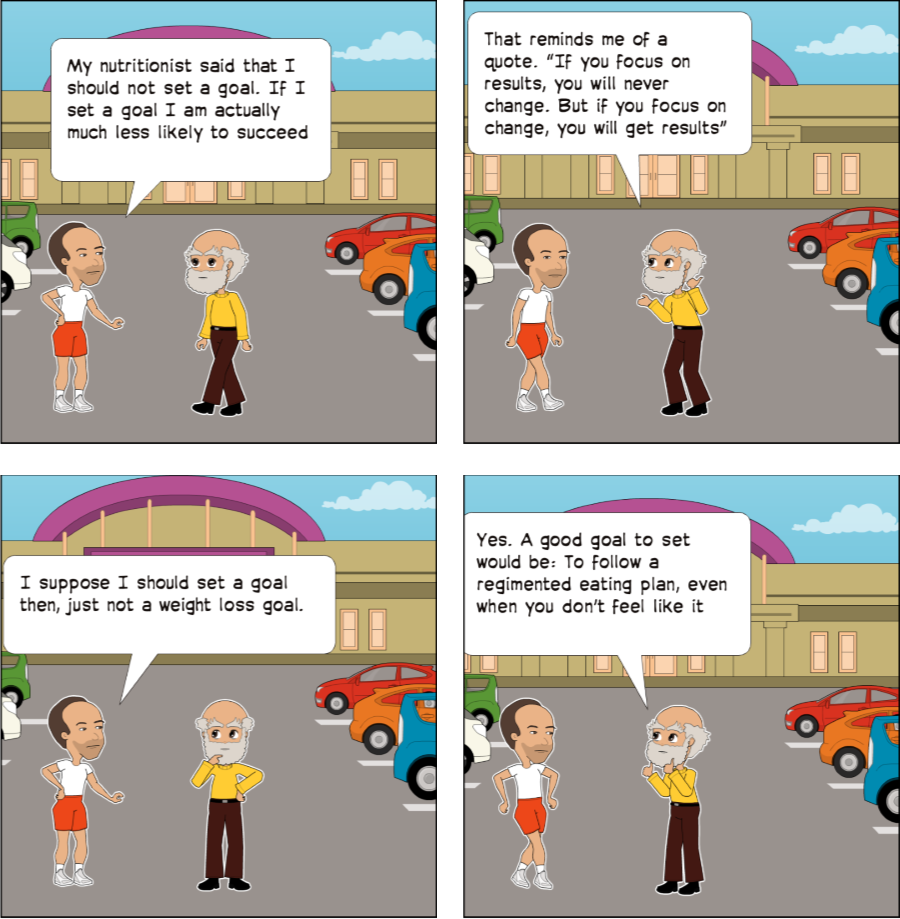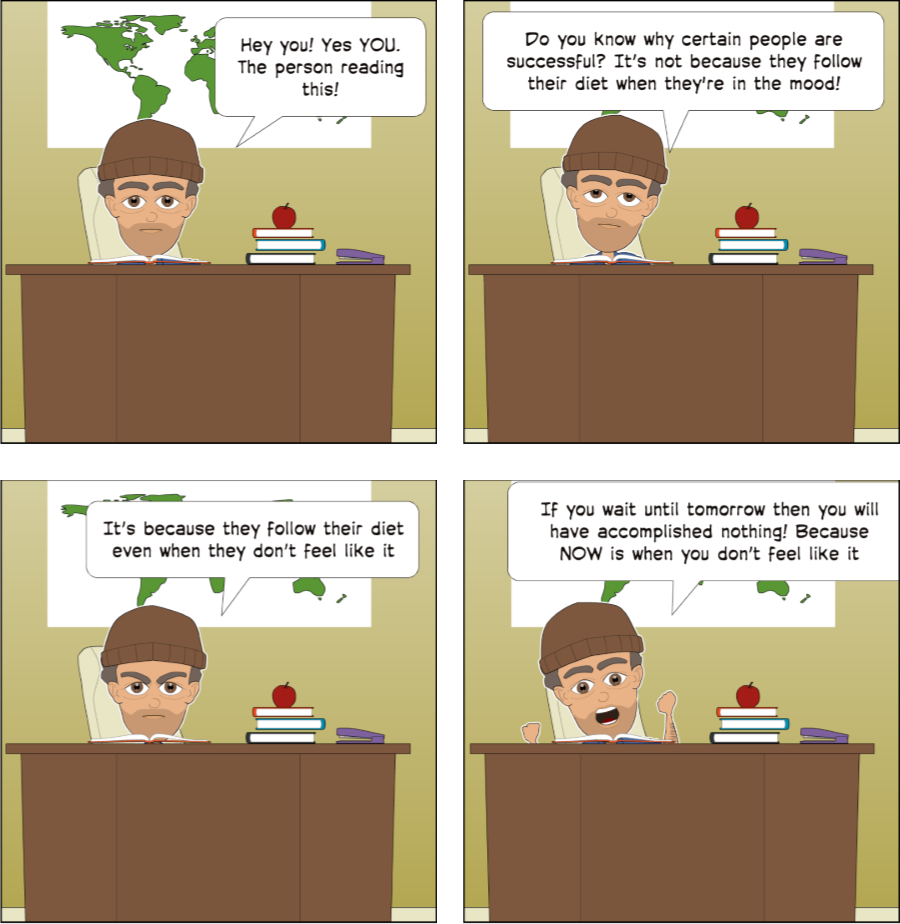Expectations
People tend to overestimate how much weight loss is normal per week and how much weight loss is realistic overall. People tend to overestimate how consistent the scale will be.
Goals
You should not make a weight loss goal for yourself. People who do not set weight loss goals are more successful than those who do. People who do not set goals lose on average 10 lbs. more than people who do set goals. Having a weight loss goal may lead to you feeling overconfident when you are doing well and then lowering your guard. Having a weight loss goal may lead you to be discouraged when you are not doing well and then taking your diet less seriously.
Stages
It is easier to lose weight in multiple stages than in one stage. For example, 100 lbs. is difficult to lose and difficult to maintain. If a person were to lose 50 lbs. maintain it for a year, then lose another 50 lbs., it will be much easier than losing all 100 lbs. at once. (It is not just twice as easy to lose weight in two stages; it is eight times easier; eight times easier to lose the weight, and eight times easier to maintain the weight).
BMI Chart
The BMI chart is not an accurate way to know what an appropriate weight is for an individual. It is a way for a medical professional to estimate what an appropriate weight is for a population. The BMI chart estimates appropriate weight, based only on height. (Not on important factors such as gender, age, muscle mass, bone density, shoulder width, health, or where the fat is stored in the body).
Good Goals
Instead of having a weight loss goal, a good short-term goal is: To follow a regimented eating plan, even when you don’t feel like it. A good long-term goal is: To become a person who predictably follows a regimented eating plan, even when you don't feel like it.

Loss of Motivation
Motivation generally starts off strong in the morning and weakens as the day goes on. You cannot take motivation for granted because it's stronger when you begin your diet but fades as a diet progresses. The solution to a loss of motivation is sustainability. The more sustainable a diet is, the less difficult it is, and the less motivation you need. People tend to be less committed to their diet at its later stages because:
1- The diet is less exciting. (When you do something for a while, it becomes less exciting).
2- You can no longer lose weight as easily. (The less you weigh, the harder it is to lose weight).
3- You are less upset about your weight. (The less you weigh, the less your weight bothers you).
4- You have a less perfect record. (The longer you are on a diet, the more chances you would have had to slip up. The more slip-ups, the less motivation).
Solutions for Loss of Motivation
1- The diet is less exciting. Solution: Make the diet more exciting; Introduce new foods, new techniques, new behaviors, new types of support.
2- You can no longer lose weight as easily. Solution: Realize you have an eating problem, not a weight problem.
3- You are less upset about your weight. Solution: Realize you have an eating problem, not a weight problem.
4- You have a less perfect record. Solution: You need to correct not one, but several incorrect mindsets. (More on this later).
How to Look at the Scale
The scale is meant to be used for information, though people make the mistake of looking at the scale as a reward. The problem with looking at the scale as a reward is:
1- You begin your diet with more reward for less work. (I.e., you lose more weight without having to work so hard), and with every passing week, you do more work and get less reward. (I.e., you lose less weight and dieting is harder)
2- The scale needs to consistently give accurate feedback. (E.g., even when you stick to the plan and get thinner, the scale might not show weight loss because you are retaining water). Losing weight is a side effect of following a food plan. Focusing on your eating problem and not your weight problem is necessary because you will not solve your weight problem unless you solve your eating problem.


Comments are closed.